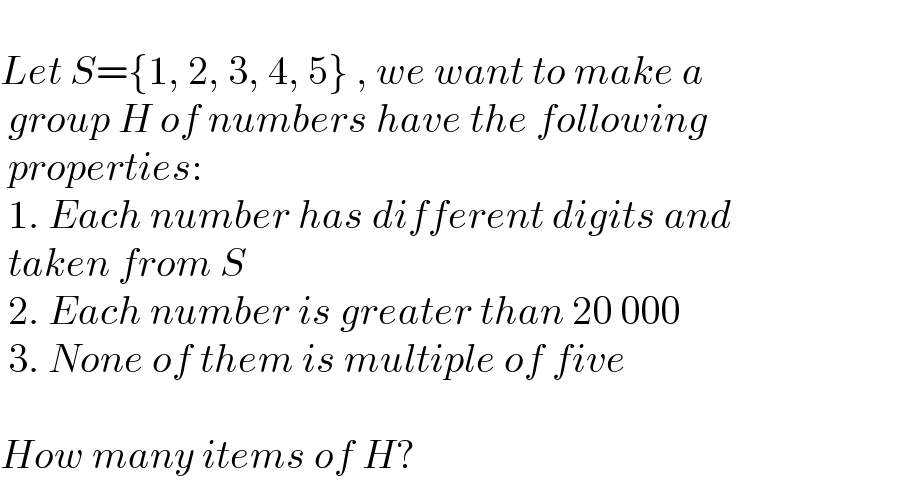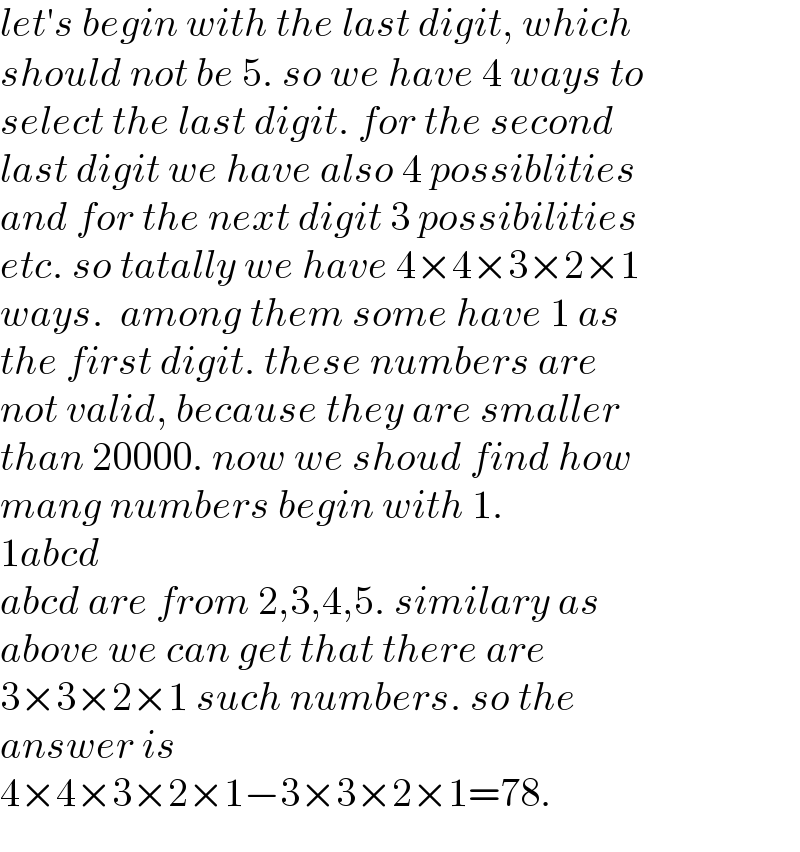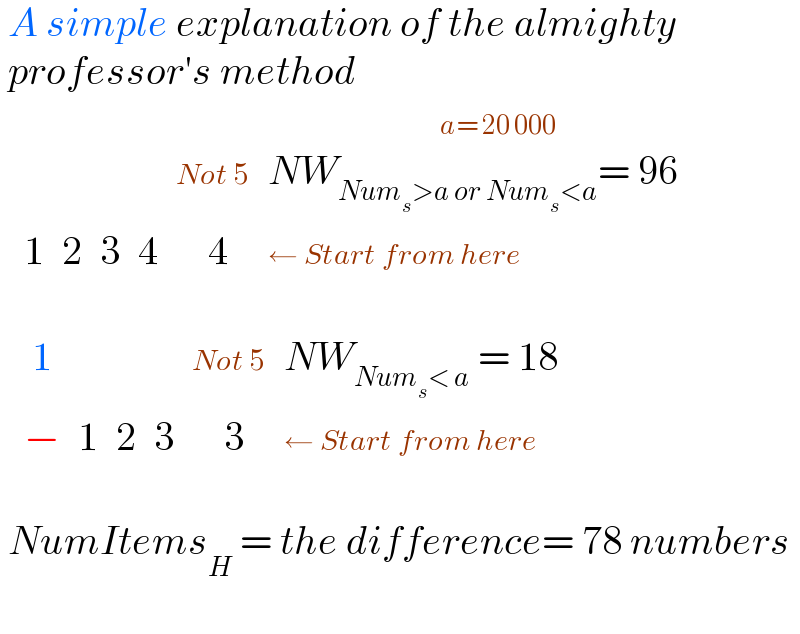
Question and Answers Forum
Question Number 178021 by Acem last updated on 12/Oct/22

Answered by mr W last updated on 12/Oct/22

Commented by Tawa11 last updated on 12/Oct/22

Commented by aurpeyz last updated on 12/Oct/22

Commented by mr W last updated on 12/Oct/22

Commented by Acem last updated on 12/Oct/22

Commented by aurpeyz last updated on 12/Oct/22

Commented by Acem last updated on 12/Oct/22

Commented by aurpeyz last updated on 12/Oct/22

